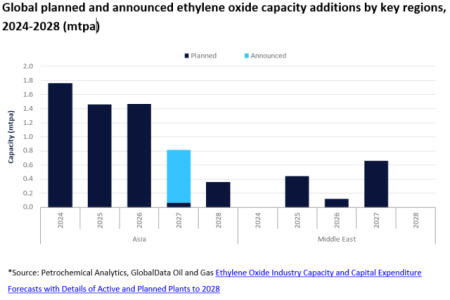07 March 2013, Abuja – Chairman, Senate Committee on Rules and Business, Senator Ita Enang, has called on President Goodluck Jonathan to revoke and re-allocate oil blocs, saying that the northerners control 83 per cent of oil blocs in the country.
Senator Enang said this, Wednesday, when discussions on the new Petroleum Industry Bill, PIB, entered its second day on the floor of the Senate in reaction to the position of Northern Senators on Tuesday that allocation from the oil revenue has been mismanaged by the Niger Delta region.
Enang, who represents Akwa Ibom North/East, said it was imperative for the Federal Government to look at the way oil blocs were distributed, with northerners dominating ownership in the country.
He explained that the bill was good because it makes it easy for all the laws governing the petroleum industry to be seen in one volume and body of laws referred to in one Act.
He said it was better than a situation where the Petroleum Act, Petroleum Product Pricing Regulatory Agency, Petroleum Technology Development Fund, Associated Gas Re-injected Act, among others, are found in different volumes of laws, made in different dates and possibly with conflicting provisions.
Blocs, oil fields, firms
He also revealed that eminent Nigerians benefited from the distribution of the oil blocs. He named the beneficiaries to include late President Umaru Yar’Adua; former Vice President Atiku Abubakar; the Emir of Kano, Ado Bayero; former Minister of Petroleum, Dr. Rilwanu Lukman; former Minister of Defence, General Theophilus Danjuma from 1999-2003 and also Chief of Army Staff (1975-1979).
Others are Alhaji Aminu Dantata; Col. Sani Bello; Alhaji Mai Deribe from Borno State; Mallam Sanusi Lamido; Alhaji Saleh Gambo; Emeka Offor; Mike Adenuga; Yinka Folawiyo, among others.
Senator Enang said in his paper: “Cavendish Petroleum, the operators of OML 110, awarded to Alhaji Mai Deribe of Borno State (North-East), nets an average of about N4 billion monthly; Seplat/Platform Petroleum, operators of the Asuokpu/Umutu marginal field has Mallam Sanusi Lamido as a major shareholder and director.
“South Atlantic Petroleum Limited, SAPETRO, established by Danjuma, who is also the Chairman of ENI Nigeria Limited. SAPETRO partnered with Total Upstream Nigeria Limited, TUPNI, and Brasoil Oil Services Company Nigeria Limited to become operators of the OPL 246.
“AMNI International Petroleum and Development Company is owned by Colonel Sani Bello of Kotangora, Niger State. They are operators of OML 112 and OML 117. A former Petroleum Minister and former OPEC Chairman, Rilwanu Lukman, another northerner, manages AMNI oil blocs and with very key interests in the NNPC/Vitol trading deal.
“Oriental Energy Resources Limited, a company owned by Alhaji Indimi, runs three oil blocs: OML 15, the Oldwok field and the Ebok field. Alhaji Aminu Dantata’s Express Petroleum and Gas Limited operates OML 108; OML 113 allocated to Yinka Folawiyo Petroleum Limited is owned by Alhaji. W. I. Folawiyo.
“OPL 291 was awarded to Starcrest Energy Nigeria Limited, owned by Emeka Offor, which was sold by Starcrest to Addax Petroleum. Emeka Offor still has a stake in Addax operations in Nigeria.”
Continuing, he revealed that “Mike Adenuga’s Conoil is the oldest indigenous oil exploration company in Nigeria with six oil blocs; Alhaji Saleh Mohammed Gambo’s North East Petroleum Limited is the holder of the OPL 215 license.
“NOR’EASTER Petroleum was awarded the blocs OPL 276 and OPL 283 and closing thereupon a Joint Venture Agreement with Centrica Resources Nigeria Limited and CCC Oil and Gas; and INTEL is owned by Atiku Abubakar, Yar’Adua and Ado Bayero and has substantial stakes in Nigeria’s oil exploration industry, both in Nigeria and Sao Tome and Principe”
We’re more concerned with sharing than baking — Sen Kaka
The debate on the PIB would be concluded today, where it is expected to sail through the second reading and subsequently referred to the relevant committees for further discussions.
On his part, Senator Sefiu Kaka said funds generated from oil have not been utilised judiciously by the country.
Kaka said: “I support with mixed feelings in the sense that when we look at where we were in 1999, when the price of crude was about $10 per barrel, and from then till 2005,when the price rose to $147 per barrel, we appear to have been failing the nation by not utilising the money judiciously.
“We are rather more concerned about the sharing of the cake rather than how to bake the cake. It seeks to bring together 16 enabling Acts guiding our monoculture product.
“We are still going ahead to increase the cost of governance by expanding the Act of governance of that important sector. The power being sought for the minister of petroleum, which is a transient position, should be looked at critically so that we don’t give too much power to government institution which is the life wire of the economy.”
‘Reduce governors’ allocation’Senator Danjuma Goje said: “I was one of the people completely opposed to the bill. But from the trend of the debate, it looked like the Senate is ready to do a thorough job without fear or favour. For this reason, I will join others in asking that this bill be considered while the contentious positions are addressed.
“Speaker after speaker agreed that powers of the minister are enormous. It is necessary that the power be reduced so that whosoever is the minister is not a super minister.
“We should make definite provision for the funding of expansion of exploration frontiers. The allocation going to governors should be reduced.”
For Senator Barnabas Gemade, he argued that corruption has denied Nigeria the opportunity to develop, saying “there is a common adage that wherever you find oil, corruption comes in and whenever you find diamond, war comes in.
“This has been proven beyond doubt. That is why there was war in Liberia and corruption in Nigeria. There is oil everywhere and if we play lips service in the development of oil fields, we would be left in the cold.”
Senator Chris Anyanwu said there was need for the Federal Government to tackle oil bunkering and pipeline vandalism in the country.
She said: “Nigeria is a big player in world’s oil production. PIB is important, not only to Nigeria but entire world. $10 billion worth of oil theft was recorded in 2012.
“It is done through bunkering but major quantity goes through pipeline vandalism because communities are angry over the activities of their leaders and oil companies. Last year, the Navy destroyed 3778 illegal refineries.
“The element I like most in the bill is the host community fund because it removes the motive for crime. It gives them a sense of belonging and ownership but the fund is not as bad as people thought yesterday. Brazil gives 18 per cent to host communities.
“Until the PIB is ready and people know that their investment is safe, they will not come to Nigeria. I will advocate that we extend these elements to other sectors.
“In Zamfara State, so many children were destroyed due to illegal mining of lead. The Bill should advocate a similar court to deal with crime in the oil sector.”
On his part, Senator Olufemi Lanlehin said: “Section 191 of the bill gives the President awesome power to grant oil or petroleum license. It does not state what the special circumstances or percentage of licenses the President has power to grant.”
“We’re on the right path”Also contributing, Senator Akin Odunsi said: “I will expect that the debate is to be conducted in a most pragmatic manner. With the consensus building up, I believe we are on the right track towards ensuring that we deliver a bill that will lead Nigeria on the right path. There are areas we must pay special attention to.”
Senator Abdullahi Adamu, while contributing to the discussion, said there was need to reform the oil and gas sector to ensure transparency and accountability.
Also contributing, the deputy Senate Leader, Senator Abdul Ningi, PDP, Bauchi Central, said: “The 10 percent host communities’ funds law is not implementable.”
He added: “I accept the spirit behind the need for reform of oil and gas sector because of lack of transparency, accountability and lack of accurate figure of the magnitude of crude oil that is lifted from the country on daily basis.”
*Vanguard




